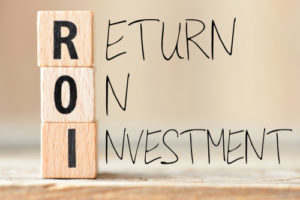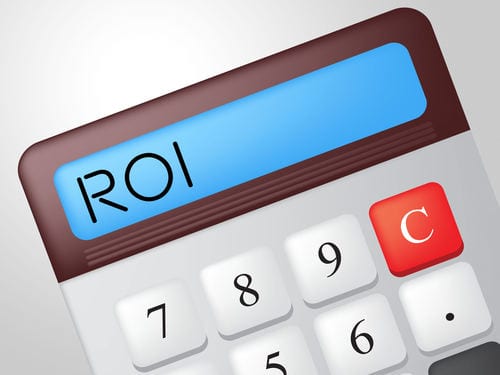Looking for a college that ranks as one of the best in your state? Searching for a school that is a great value or has the best Return on Investment (ROI)? Our writers have combed the states to find just that and all you have to do is click a state as we reveal our picks of the Top Online Schools and Best Value Colleges in Each State!
What do you mean by “Best Value”?
The thought of attending college is exciting for most students. They anticipate new academic experiences and forge new lifelong friendships. Hopefully, a push towards adulthood and starting their dream career are the end results. But for many, exorbitant student loan debt looms above their heads after graduation; therefore, putting a damper on one’s excitement and bank account. Here, we hope to answer your concerns about your “returns on your investment” or perhaps better referred to by financial analysts as “ROI.”
- What is Roi?
- What is the formula for determining ROI?
- How does ROI relate to college education?
- How do I discern my particular ROI?
- Why should I be concerned with ROI?
- How do I know if my ROI is reasonable?
- What are my options if my ROI does not show positive results?
What is ROI?
 ROI (Return on Investment) is a term of measurement often used by financial establishments to analyze or predict one’s profit or losses. The term ROI can be applied to any financial situation, whether it is referring to a potential business deal, personal investments or your college education.
ROI (Return on Investment) is a term of measurement often used by financial establishments to analyze or predict one’s profit or losses. The term ROI can be applied to any financial situation, whether it is referring to a potential business deal, personal investments or your college education.
What is the formula for determining ROI?
Typically, ROI calculations are determined by using the following method:
- Net Profits divided by Investment Costs x 100 = ROI %
As it pertains to college, ROI is determined by a number of factors. We found a great ROI calculator that can help you based on your individual college/career needs at www.moneyunder30.com!
How does ROI relate to a college education?
Numbers are important! We’ve all heard the expression, “The numbers don’t lie,” right? It’s true! In health-related issues, our numbers are critical and tell the doctor our overall health status, good or bad. The figures relating to your college expenses and your potential career earnings are crucial to your financial well-being, now and in the future.
As today’s high cost of tuition continues to rise, more and more students are questioning if obtaining a college degree is really worth it. There are many variables to consider, so it may be hard to determine an exact ROI, but it’s worth putting pen to paper at least to see if college is a viable option for you.
How do I discern my particular ROI?
As a potential college student, you should first determine your career goal and salary expectations. What do you expect to earn one year after graduation? Five years? Or, as a long-term plan, ten or twenty years down the road? Secondly, calculate your desired school’s total tuition costs. In doing so, you will want to consider including additional educational tuition for graduate degree and certification programs if required.
Now, as you know, there are many, many factors to add (or subtract) from the above-mentioned figures. When considering tuition costs, you may want to deduct potential scholarships or grants that you contemplate receiving. If you are attending traditional on-campus classes, you will need to include other expenses, such as room and board, food allowances, as well as, gas and travel expenses.
If you opt for online distance learning, your expenses will be considerably less; however, within any learning environment you will most likely incur miscellaneous fees, in addition to paying the high costs of textbooks. So, to summarize, calculating an exact ROI when it comes to earning your degree can be somewhat tricky, but getting a general idea is advisable.
Why should I be concerned with ROI?
 Well, quite frankly, some people are concerned with their ROI when signing up for college classes, and some are just not. If you are someone that must spend their money wisely and you’re already on a tight budget, perhaps the mountain of student loan debt seems like a ridiculous expense that you can’t see yourself ever recovering from. In that case, exploring your ROI percentage is imperative.
Well, quite frankly, some people are concerned with their ROI when signing up for college classes, and some are just not. If you are someone that must spend their money wisely and you’re already on a tight budget, perhaps the mountain of student loan debt seems like a ridiculous expense that you can’t see yourself ever recovering from. In that case, exploring your ROI percentage is imperative.
On the other hand, should you let a “not so great” ROI percentage deter you from fulfilling your lifelong career aspirations? Certainly not… if you have the determination, desire and discipline to be student loan debt-free as soon as possible.
How do I know if my ROI is reasonable?
Generally, if your ROI figures are on the positive side, you’re good, especially if you are following your dream and know you will truly enjoy your choice of career. Of course, the variables in which you include in your calculation of your ROI will affect your percentage outcome, whether good or bad. Each person’s ROI numbers will be different and relevant to their own personal and financial situations. Naturally, the higher your ROI percentage, the better!
What are my options if my ROI does not show positive results?
Hopefully, your return on your investment in a quality education will be supported by a lucrative career choice; however, if not, what can you do? Don’t give up on your dream just yet. Here are several options to consider:
- Conduct research on another school. Sure, you’ve dreamed of going to a particular college or university all of your life, but suppose there are other schools to consider; colleges or universities that offer your required classes but at a fraction of the price. And don’t forget to apply for every grant or scholarship available. You may actually qualify when you thought you would not.
- Have you considered earning your associate degree at your local community college? This is an excellent way to reduce your tuition costs, and most credits are easily transferable to a bachelor’s degree program in the future.
- Significant savings can be found if you attend a college within the state you reside. Often, out-of-state tuition is much higher, sometimes almost double.
- And, don’t forget to check into degree programs offered online. Often distance learning programs cost less, and they offer the same quality of education as the traditional brick and mortar college or university.
- Lastly, if your ROI is looking bleak (in the broad scheme of things), you may want to consider a trade or vocational school. Learning a trade can provide a lucrative living with minimum tuition costs. Typically, vocational school certificates or diplomas can be earned within a year or two, depending on the topic. Learning a trade will provide you with the opportunity to enter the workforce sooner, rather than later.
Unfortunately, some areas of the country do not have enough jobs to accommodate their college graduates; therefore, they often find themselves underemployed and living at the poverty level due to excessive student loan debt. As student loans in the U.S. have reached an exceptional high of 1.4 trillion dollars as of 2020, weighing your options is undoubtedly a smart move. Knowing your ROI can help you make wise choices in choosing the right college for you!




